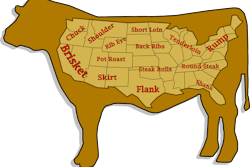
U.S. Representatives Jim Costa (CA-21) and Dusty Johnson (SD-AL) have introduced the Modernizing Operations for Vehicles in Emergencies (MOVE) Act, a bipartisan bill aimed at providing flexibility and ensuring the efficiency of supply chains during emergencies.
Recognizing the challenges faced by communities during emergencies and the recent pandemic, Congressman Costa emphasized the importance of this legislation in removing supply chain barriers, especially in times of dire need. Congressman Johnson highlighted the necessity of keeping goods moving during crises, noting that the MOVE Act aims to eliminate unnecessary roadblocks and bureaucratic red tape.
American Trucking Association President & CEO Chris Spear supported the bill, emphasizing its crucial role in allowing expedited delivery of relief supplies during natural disasters, without bureaucratic delays. Sean Joyce, Executive Director of the Shippers Coalition, also commended the MOVE Act, noting its significance in ensuring prompt response during crises and maintaining access to essential goods for Americans.
Background information provided reveals that states currently have the authority to waive federal weight limits on the interstate system during emergencies, facilitating the quick delivery of relief supplies. These waivers have been instrumental during the pandemic and natural disasters. However, current laws limit this flexibility, as special permits are only issued if the President declares a major disaster under the Robert T. Stafford Disaster Relief and Emergency Assistance Act. The COVID-19 pandemic highlighted the inadequacy of this standard, leading to the need for the MOVE Act.
The MOVE Act proposes to modernize vehicle weight waiver authority for various emergencies, including natural disasters and diseases, that impact commerce and supply chains. Key provisions of the bill include expanding the federal government's allowance for states to waive weight limits on the Interstate System under more diverse emergency declarations, including those made by Governors regarding diseases and supply chain challenges. Additionally, the Act extends the duration of these declarations to 270 days, compared to the current 120-day maximum, to provide adequate response time for emergencies.
















